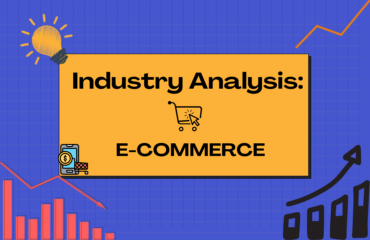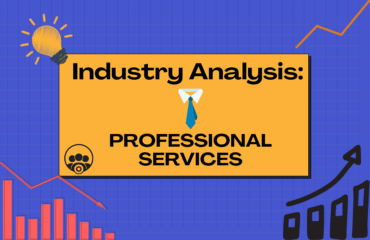Table of Contents
Do you feel that you have lost your mojo for your current role? Perhaps, an industry change may be the flint you require to re-ignite your spark. An industry switch can be daunting at first, but you can make well-informed decisions with the right preparation, research, and guidance.
To assist you with your industry change, in this article, we will focus on key aspects that one should keep in mind while considering switching to the healthcare industry. The healthcare industry is considered one of the largest industries, and research suggests that it is expected to grow further in the future. This growth would be guided by several drivers such as:
- Technological innovation
- Integration of medicine and healthcare
- Patient-centered restructuring
- Hospital administration
- Data management
Various companies fall under the gamut of healthcare. These include clinical services, manufacturing of drugs and medical equipment, healthcare financers, and health insurance. This has created opportunities for collaboration amongst different stakeholders, including doctors, nurses, medical administrators, government agencies, pharmaceuticals, medical equipment manufacturers, and medical insurance companies.
According to Deloitte’s analysis, Covid-19 has led to several foundational shifts in the global healthcare industry’s workforce, infrastructure, and supply chain. From increased involvement of consumers in healthcare decision-making and adopting virtual healthcare to digital innovations and public-private collaborations, this industry has considerably changed. Thus, amidst these changes, there has been an impact on the stakeholders to rapidly innovate and adapt, which has therefore opened new avenues in this industry.
Backed with insights from healthcare professionals and experts in the field, let us go through some factors that will help you understand and analyze your switch to the healthcare industry.
1) Understanding the Healthcare industry
To be well-versed with the professional trajectory of the healthcare industry, an in-depth career path discovery is imperative. Performing a professional evaluation will help you analyze your target industry, focus on your career transition, and narrow down options. There might be opportunities unknown to you initially, for which you are qualified but unaware. Hence, take time to explore every detail of the new roles and career paths by reading job descriptions and job-related articles and reaching out to professionals in the field.
When asked about which companies should one look for if they want to shift to the healthcare sector, a senior professional in health-tech suggests, “You can find a plethora of companies ranging from start-ups such as Clue, Calm, to established technology players, consulting companies to the traditional pharma, and even the government organizations like the NHSX, who are looking to infuse new talent in the wave of health tech disruption.”
The other key step while evaluating the profession is understanding which individuals one should reach out to for guidance and mentorship. It is always helpful to look for someone with a shared background working in the health domain. Usually, a LinkedIn search does well to serve you a few options, and then finding a common relatable topic such as social impact, similar college degrees, or shared passions might translate to a fruitful conversation. A senior professional in the health-tech sector recommends, “Be sure to frame the conversation around why you want to join this domain. A person with over 3-5 years in the domain would be a good mentor/guide.”
Professional evaluation will help you understand the role better and determine whether this new role/career would align with your skills, interests, and values. This would also help you prepare for the flipside of the situation, i.e., limitations (if any). It will help you analyze if you could take up a certain role immediately or after undertaking a degree/additional qualification. Hence, this is a crucial step in deciding your way forward.
2) Exploring different Healthcare career paths
Whether you are a veteran or a beginner, knowledge about an industry is incomplete without the awareness of opportunities for growth in a particular industry. The question is: What are the long-term prospects of jobs in this sector? According to a senior healthcare professional, “This sector is growing, and with the growing population, there will be a need for more health-related interventions. After the COVID-19 pandemic, this sector is expected to significantly increase its investment, and in the longer term, the outlook looks promising.”
In addition, you can pursue MOOCs or diploma/degree courses for executives to join or grow in this sector. As the senior professional in the industry suggests, “Depending on the direction and your appetite, you might want to take courses that either augment your present skills on platforms like EDX or Coursera, or you can pursue part-time/online masters from colleges like Imperial / John Hopkins for a deeper immersion (offered via Coursera).”
3) Understanding required skills and knowledge
When considering a career switch, a vital step forward is evaluating your existing skills and knowledge about the target industry. This will help you set a strong structure and let you know whether this is the right time to switch careers, what you want out of a career change, and what you may need to do to make it happen. Therefore, self-reflection is key to acknowledging the existing skills and strengths and awareness of skill/knowledge gaps. To understand your fitment in the industry, some questions that can help you judge the situation are:
- Is there any specific set of values that are strongly associated with the healthcare sector?
- Are there any transferable skills that an individual can bring from the other sector to this sector?
Based on inputs from healthcare experts, while various roles within the health domain need quantitative (e.g., public health) and qualitative skills (community-based organizations), the core values are curiosity and empathy if you are not from a traditional healthcare background. Healthcare systems worldwide are different, and you might have to learn, unlearn or relearn skills as you grow through your career. This is why curiosity is key. Decisions made in this field will either directly or indirectly affect human lives, and it is not a domain akin to ‘move fast and break things as the breaking things might have severe consequences. Patience in thinking through the harms and benefits and deeply immersing yourself in the people you would serve is likely to serve you well.
Furthermore, healthcare industry aficionados believe that the traditional healthcare sector still looks for relevant medical, biology, or biotechnology backgrounds. However, the growing tech-led ecosystem of health-tech applications is seeing a rise in people ranging from deep domain experts with transferable skills within the sales, marketing, and strategy ecosystems, where people have worked before. As per the experts, “The most interesting gamut of skills are generally offered by people who have worked in the social impact / community-based-organizations before, as they know how to drive the three key aspects of a good health intervention (digital or otherwise) which are:
- Awareness
- Adoption
- Adherence
Industry specialists believe that as a newcomer in the healthcare industry, there will be a few hiccups in the journey, such as disconnected health systems, legacy, and a general tendency to resist change. Furthermore, the shift to new ideas and adoption takes years, unlike some other faster-moving industries. However, these obstacles can be overcome by equipping yourself with the required skills for the target industry and connecting with field pioneers. In case you need any support with your industry change, career strategy development, or networking, feel free to reach out to us.








